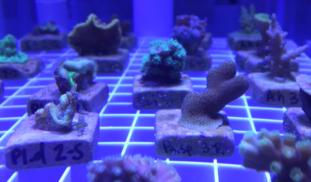Please wait...
About This Project
As ocean warming continues to threaten coral reefs worldwide, it is uncertain whether they will survive. In these experiments, I focus on how corals are going to adapt, specifically investigating how thermal acclimation can be a potential mechanism for coral adaptation and evolution. Here, I will use a multi-species approach to pinpoint some "winners" and "losers" in climate change, important information that will help create management and conservation plans to protect these ecosystems.






